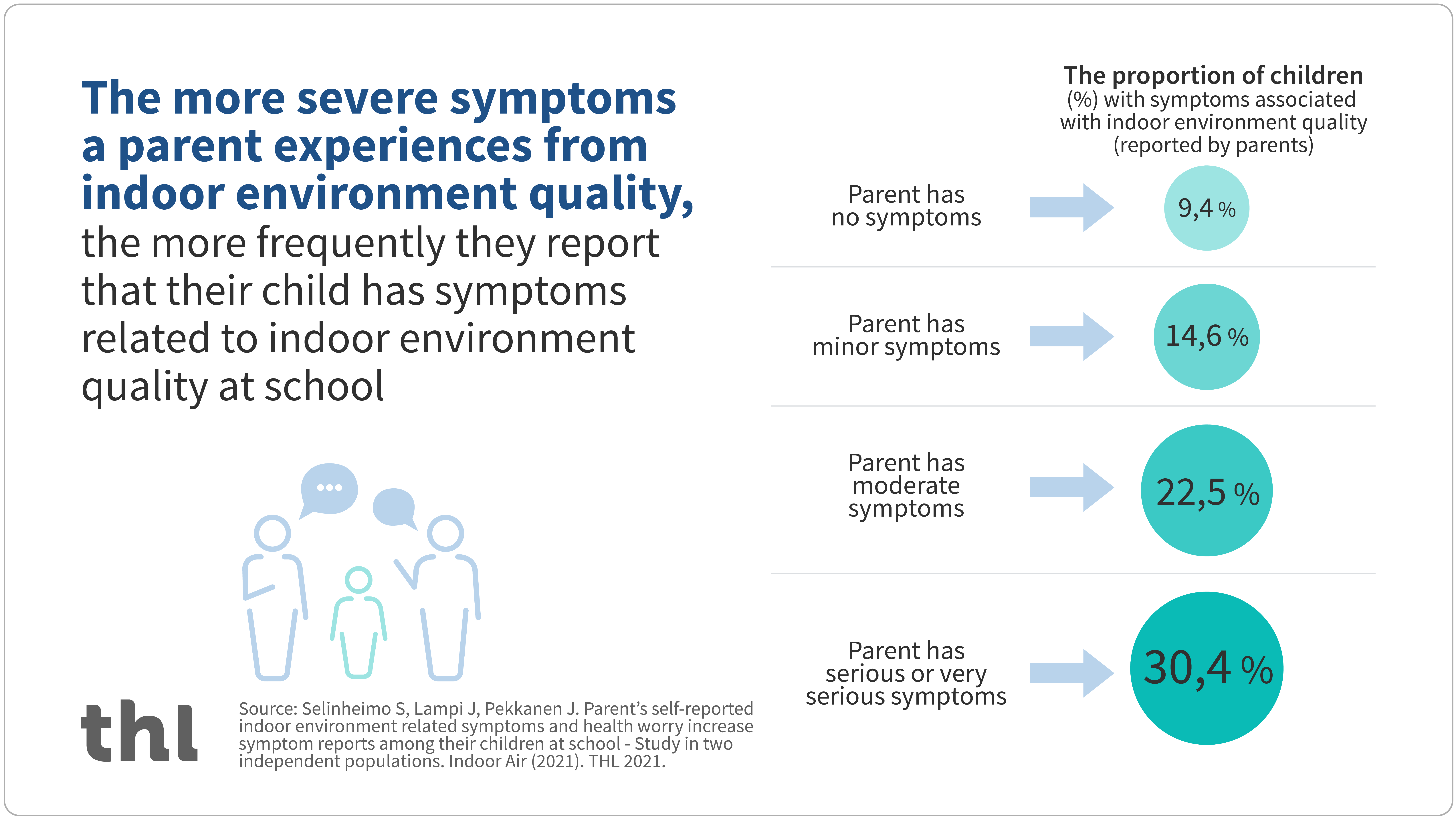Study: Parent’s symptoms and health worry related to indoor environment increase their reporting of their children’s symptoms at school

Parents’ own symptoms and health perceptions related to indoor environment quality affect their reporting of children´s indoor environment quality (IEQ) related symptoms at school. Parents who associate their own symptoms with the indoor environment are more likely to report IEQ related symptoms also on behalf of their children.
A new study conducted by the Finnish Institute for Health and Welfare (THL) and the Finnish Institute of Occupational Health examined factors that affect the reporting of symptoms by parents and children. The study was recently published in “Indoor Air”, one of the leading science journals in this research field.
A similar, though slightly weaker correlation was observed when the symptoms were asked directly from the child. When a parent reported having symptoms relating to poor indoor environment quality, also their child would report more frequently symptoms at school.
“This shows for the first time that parental symptoms and health perceptions related to indoor environment quality influence the reporting of symptoms by the child itself. Observing their parents is a normal way for children to learn. We need further studies on how family behaviour affect symptoms and how they are reported”, says psychologist Sanna Selinheimo.
The results remained unchanged also when different confounding factors were considered, such as indoor environment quality in school buildings, parental and children’s allergic disease and family socio-economic status. The results were also consistent across two different Finnish datasets.
Health perceptions related to indoor environment quality influence how symptoms are being reported
Previous studies have shown that increased symptom reports associate with increase in concerns about environmental health risks. These health perceptions affect how symptoms and physical reactions are interpreted.
“The results show that the more serious symptoms are experienced by the parent, the more likely it is that the parent will report symptoms related to indoor environment quality at school on behalf of the child. The impact of parents´ health perceptions on their reporting of their children´s IEQ related symptoms can be even greater than the impacts we typically observe from exposure to harmful indoor air contaminants. The multifactorial background of symptom reporting is important to consider, both when interpreting the results of the indoor environment quality questionnaires, and when promoting the well-being of a child”, says Professor Juha Pekkanen.
These recently published results are based on analysis of two independent datasets: the Survey for pupils and their parents of Indoor environmental quality and symptom reporting in schools in Helsinki 2017-2018 and a population-based National survey on indoor air, 2018. Material for the School-study comprised 1617 parent-child dyads in which both the primary school pupils and their parents filled out their own questionnaires. Responding to the latter national survey were 611 parents with children under the age of 18.
Reference:
Selinheimo S, Lampi J, Pekkanen J. Parents’ self-reported indoor environment-related symptoms and health concerns increase symptom reports among their children at school - Study in two independent populations. Indoor Air (2021).
Further information
Sanna Selinheimo
Psychologist
Finnish Institute of Occupational Health
[email protected]
tel. +358 30 474 2760
Juha Pekkanen
Professor
THL and University of Helsinki
[email protected]
tel. +358 40 508 1077



